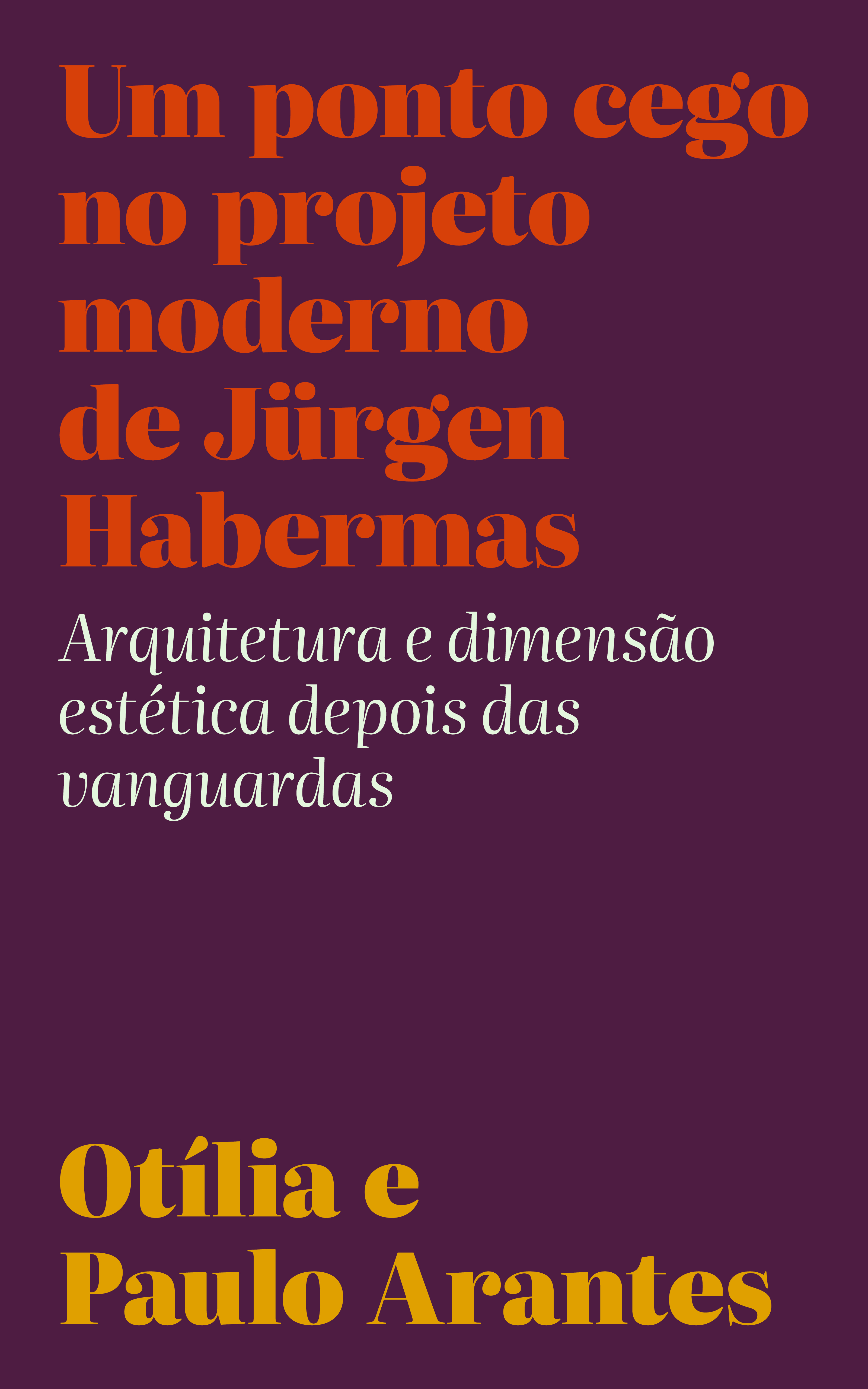A Blind Spot in Jürgen Habermas’s Modern Project
Architecture and the aesthetic dimension after the vanguards [1992]
1992
Synopsis
Written in 1990, the present text is an amplified version of an original study carried out by Otília Arantes and presented with the same title at the “Brasil Século XXI” (Twenty-first Century Brazil) international symposium in November 1988 at the University of Campinas. The dates are also important to note, since they evoke the 1980s discussion over the blatant inconsistency of Jürgen Habermas’s exception to the Modern Movement when, at the same time, the philosopher declared the production paradigm obsolete, approving the tremendous productive restructuring that was changing the face of capitalism for the worse. The ‘rescue operation’ advocated by Harbermas is even more incomprehensible when we consider that the Modern Movement in architecture was the most comprehensive and complete embodiment of the techno-utopia of labor and the twentieth century’s aestheticist machine-obsessed civilization. Ignoring the systemic impulses of everything that enabled the utopia of combining the aesthetic aspect of Constructivism with the most elemental social purposes, Habermas multiplied ad hoc categorial distinctions as he described the exhaustion of the Welfare State, for which the Ideology of Planning was more than a legitimizing façade, serving as a support column for any urban initiative. The attempt to identify the reasons of such historical nonsense was undoubtedly what triggered this study on the structural obsolescence of the Modern Movement. The mismatch that Habermas did not see, or the integral functionalization that he missed and converted into blind apology, was evident for anyone with a critical mind willing to examine the reasons for the formalist regression and other anomalies inherent to the history of the Modern Movement, which was gradually unveiled by the reality of that international triumph.
Keywords: Habermas, Modernity, Modern Project, Modernist Movement, Postmodernism, Ideology, Architecture, New Construction, Urbanism, Plan, Utopia, Labor, Communicative Rationality, Linguistic Turn, Illuminism, Reason, Critical Theory, Welfare, Brazil, Brasília, Adorno, Benjamin, Wellmer, Peter Bürger.

Series
Categories
License

This work is licensed under a Creative Commons Attribution-NonCommercial-NoDerivatives 4.0 International License.


